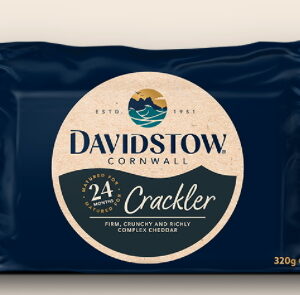UK butter deficit may increase under no deal Brexit, AHDB warns

Under a no-deal scenario, the UK would face the EU common external tariff on any exports sent to the EU, noted the Agricultural and Horticultural Development Board (AHDB) in its newsletter.
For butter, this means a tariff of between €189-232/100 kg, depending on fat content and product weight, making the majority of UK butter uncompetitive on EU markets. The UK government recently announced the tariff rates for imported products. For packaged, bulk and recombined butter, this is €60.5/100kg, which is less than one-third of the potential export tariff. The UK is in a butter deficit in both value and volume terms. In other words, it imports more than it exports. In 2018, the UK imported 33,000 tonnes more butter than it exported.
In monetary terms, the UK’s trade position has worsened in the last two years. An increase in higher priced imports and a reduction in exports have weakened the UK’s position. In 2018, the country imported £162 million (€189.1m) more butter than it exported.
With tariffs on imported and exported butter, a no deal will likely impact trade in both directions. The extent of the impact will be determined by the relative value of butter to those tariffs. In simple terms, if trade stopped entirely, the UK would have a 33,000 tonne deficit of butter. Producing this domestically would need 675 million litres of milk or 69,000 tonnes of cream.
Producing butter from raw milk would result in more skimmed milk or skimmed milk powder that would need marketing. The UK is already a net exporter of milk powder, with about 70% going to the EU.
Under no deal, UK milk powder exports would face a €118-131/100kg tariff, making them unable to compete. Meanwhile, milk powder imports will be tariff-free. UK milk powder prices would likely suffer, and so producing butter from raw milk could be less economically viable.
In terms of cream, in 2018, the UK imported 32,000 tonnes and exported 24,000 tonnes. Under no deal, cream exports will face €109.1/100kg tariffs, while cream imports to the UK will be tariff-free. It is likely that export volumes will come under pressure, but imports may continue or even rise, giving the UK access to the extra cream it needs to produce more butter. This assumes there is enough churning and packing capacity in the UK to produce the extra butter.
At the time of writing, it is unclear what the post-Brexit landscape looks like for the industry. Displacing imported butter from cream does seem a possibility. However, the complex relationship between butter and other products may make that opportunity difficult to take, the AHDB warns.






